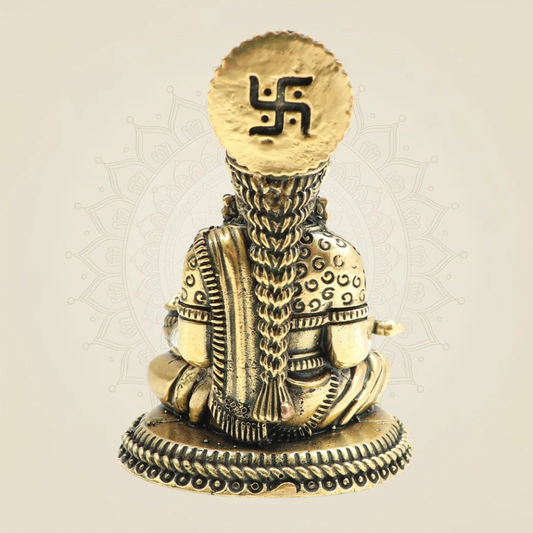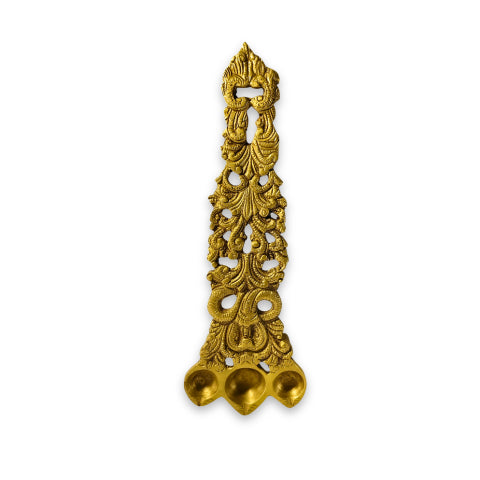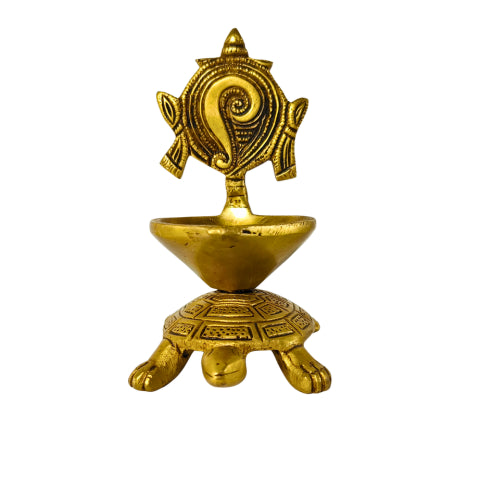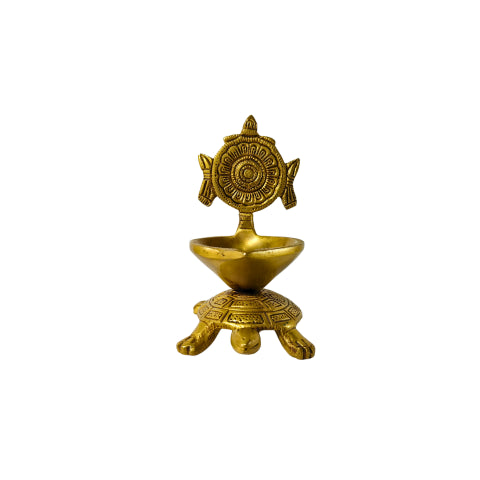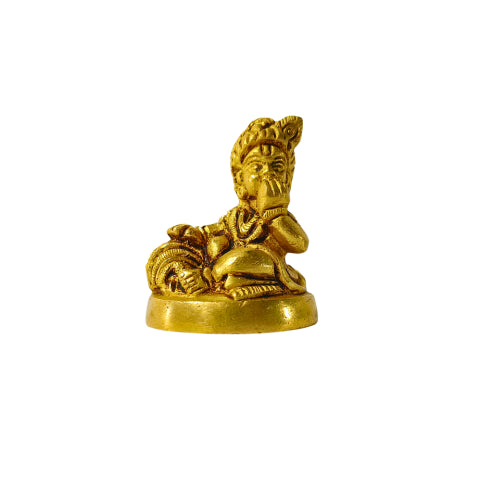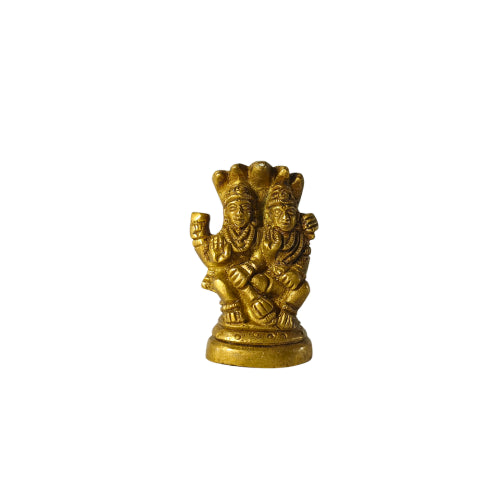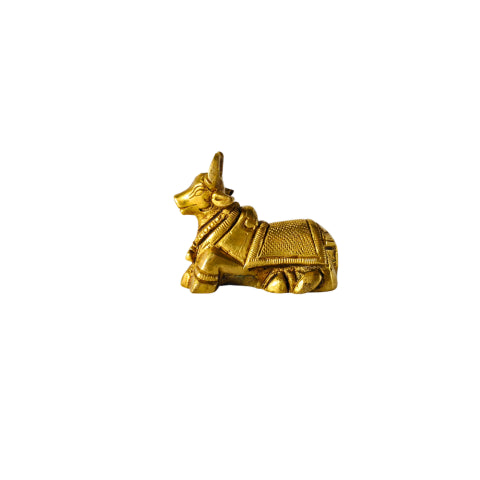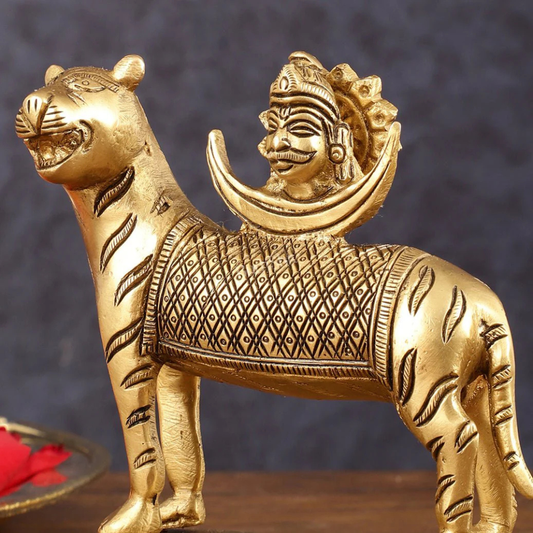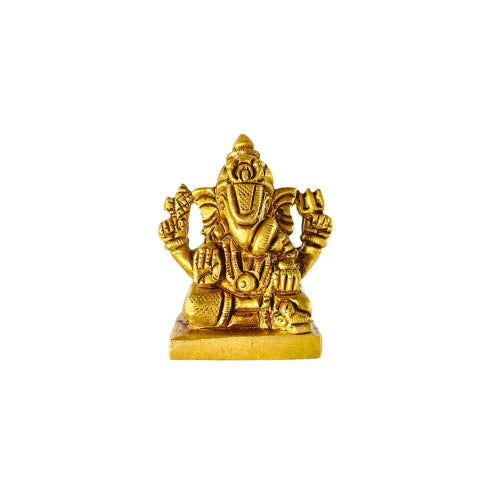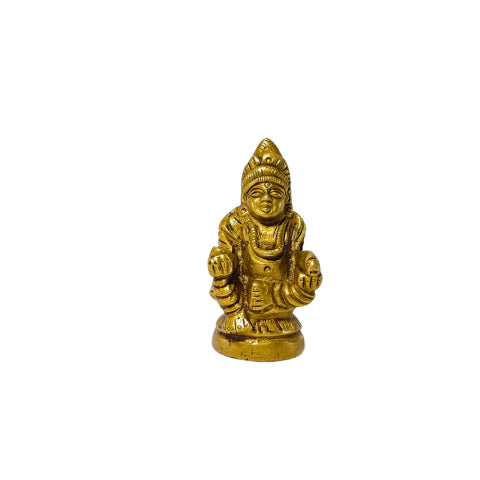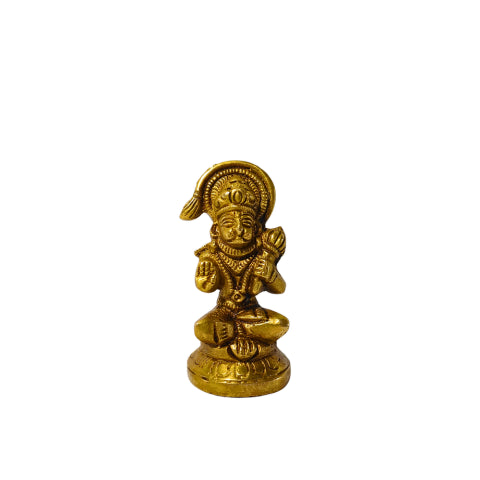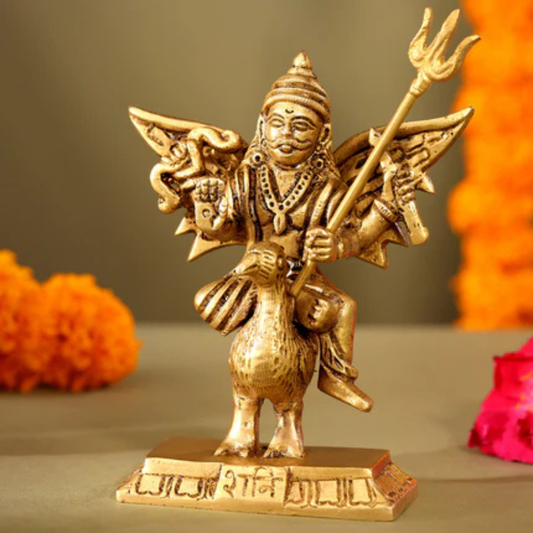What is Brass?
Brass is a traditional alloy mainly composed of **copper and zinc**, known for its warm golden appearance and durability. It is widely used in India for crafting **temple idols, pooja articles, home décor items, and heritage sculptures**.
Brass Idols & Spiritual Significance
Brass idols are considered **auspicious** in Hindu culture because brass is believed to enhance **positive energy** and maintain spiritual harmony in the house. Many people place brass idols in temples, offices, living rooms, and meditation spaces. Buy Original Brass Idols of Various Sizes at reasonable prices with Servpuja Store.
Benefits of Brass Idols
- Durable and long-lasting metal
- Symbolizes purity and divine energy
- Retains shine and detailing for years
- Traditionally recommended for pooja rooms
- Ages beautifully and develops a natural antique finish
Popular Finishes Used
| Finish Type | Appearance | Popular For |
|---|---|---|
| Hand Polished Brass | Bright golden shine | Home temples & pooja rooms |
| Antique Brass | Deep rustic brown golden tone | Traditional décor & heritage interiors |
| Matte Brass Finish | Soft gold with minimal shine | Modern home décor & gifting |
How Brass Idols are Made
- Concept & Sketch: Idol design is drawn manually or digitally.
- Wax/Clay Model: A detailed model is handcrafted to shape the idol.
- Lost Wax or Sand Casting: Molten brass is poured into molds.
- Cooling: Once the brass solidifies, the mold is removed.
- Engraving & Refinement: Artisans hand-carve fine details.
- Polishing: The idol is polished to achieve the desired finish.
- Quality Check: Assures perfect posture, shine, and fine detailing.
Famous Brass Manufacturing Places in India
| Place | State | Specialty |
|---|---|---|
| Kumbakonam | Tamil Nadu | Temple idols & South Indian sculpture tradition |
| Moradabad | Uttar Pradesh | Brass handicraft exports worldwide |
| Jaipur & Alwar | Rajasthan | Antique brass décor & traditional figurines |
| Swamimalai | Tamil Nadu | World-famous for “Lost Wax Casting” divine sculptures |
Care Instructions
- Clean regularly with a dry soft cloth
- Avoid water exposure to prevent dullness
- For polishing, use brass cleaning powder or homemade lemon solution
- Do not use harsh chemicals
- Store in a dry place to maintain shine
-
Maa Annapurna Devi Idol (18 Inch) – Divine Annapurna Statue for Home Temple & Mandir
Regular price Rs. 25,699.00Regular price -
Sacred Shubh Brass Hasta Deepak – Eternal Glow & Blessings
Regular price Rs. 1,751.00Regular price -
Shubh Brass Hand Deep – Eternal Glow of Peace & Harmony
Regular price Rs. 1,151.00Regular price -
Divya Turtle Brass Deepak – Light of Faith & Prosperity
Regular price Rs. 1,151.00Regular price -
Sacred Turtle Brass Jyoti Diya – Light of Faith & Abundance
Regular price Rs. 1,151.00Regular price -
Shubh Mangalmay Brass Aarti Diya – Eternal Light of Peace & Harmony
Regular price Rs. 551.00Regular price -
Brass Maa Ganga Statue (24 Inch) – Sacred River Goddess Temple Decor
Regular price Rs. 34,781.00Regular price -
Holy Brass Aarti Deep – Radiance of Spiritual Energy & Blessings
Regular price Rs. 551.00Regular price -
Holy Laddu Gopal Idol – Source of Love & Prosperity
Regular price Rs. 551.00Regular price -
Sampoorna Lakshmi Narayan Idol – Radiance of Prosperity & Divine Energy
Regular price Rs. 551.00Regular price -
Divine Kamadhenu Brass Idol – Source of Prosperity & Blessings
Regular price Rs. 551.00Regular price -
Big Brass Rahu Dev Murti (20 Inch) – Powerful Navgraha Rahu Idol for Home Temple
Regular price Rs. 33,791.00Regular price -
Holy Mangalmurti Ganesha Brass Idol – Source of Joy & Auspicious Beginnings
Regular price Rs. 451.00Regular price -
Shubh Dhanadhipati Kuber Brass Idol – Bestower of Fortune & Success
Regular price Rs. 551.00Regular price -
Pawanputra Hanuman Brass Idol – Guardian of Faith & Bravery
Regular price Rs. 751.00Regular price -
Brass Shani Dev Murti (24 Inch) – Spiritual Temple Showpiece
Regular price Rs. 40,351.00Regular price
Significance of Idols in Hinduism
In Hinduism, idols or murti play a profound role in spiritual practice and daily devotion. Far beyond being mere sculptures or decorative items, idols represent the divine in a tangible form, allowing devotees to connect with the infinite energies of the universe in a personal and focused manner. The concept of idol worship, or murti puja, is rooted in the belief that the divine manifests in various forms and can be invoked through proper rituals, offering a medium through which devotees can express love, reverence, and surrender.
Hindu philosophy emphasizes that God is both formless (nirguna) and with form (saguna). Idols serve as the saguna aspect, helping humans focus their mind and heart on the divine. When a devotee prays before an idol, it is believed that the energy of the deity is awakened in the idol through rituals like pran pratistha, making it a living embodiment of divine presence. This allows the devotee to feel a direct spiritual connection and experience divine guidance, protection, and blessings.
The significance of idols in Hinduism can be understood through multiple dimensions:
- Spiritual Focus: Idols act as a focal point for meditation and prayers, helping devotees concentrate their thoughts and devotion. By visualizing the deity through the idol, the mind becomes calm, reducing distractions and enhancing spiritual clarity.
- Symbolism and Representation: Every idol embodies profound symbolism. For example, Lord Ganesha represents wisdom and the removal of obstacles, while Goddess Lakshmi signifies wealth and prosperity. Through the idol, devotees internalize the qualities of the deity, inspiring them to cultivate similar virtues in their own lives.
- Cultural and Religious Continuity: Idol worship preserves centuries-old traditions, rituals, and stories that have been passed down through generations, connecting devotees to their spiritual and cultural heritage.
- Energy and Positivity: Idols are believed to carry positive vibrations and energies. Rituals like aarti, abhishek, or offering flowers and incense activate spiritual energy, radiating peace, harmony, and positivity.
- Emotional and Psychological Benefits: Praying before an idol provides emotional support, reduces stress, and instills hope, discipline, and moral guidance for daily life.
- Ritualistic and Devotional Importance: From temple festivals to home rituals, idols serve as the centerpiece for expressing devotion and gratitude, fostering spiritual discipline and community.
In essence, idols in Hinduism are sacred tools that bridge the human and divine realms. They facilitate deeper spiritual understanding, offering a tangible connection to the intangible essence of God. By revering and worshiping idols, Hindus cultivate mindfulness, compassion, and a profound sense of connection with the universe, guiding devotees toward enlightenment, harmony, and divine grace.


